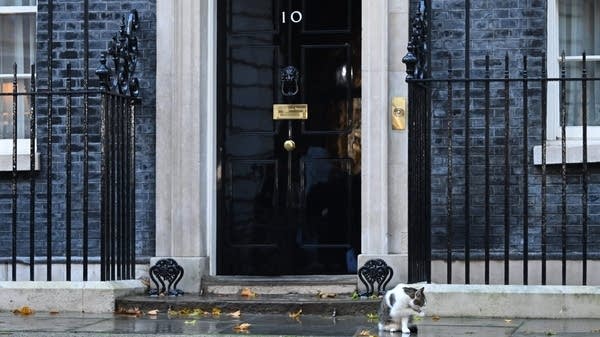Liz Truss leaves behind a chaotic U.K. economy
As British Prime Minister Liz Truss steps down, what’s next for the U.K.’s economy?

After just six weeks in office, U.K. Prime Minister Liz Truss has announced her resignation.
Truss’ rapid fall from power came after she proposed a mini budget that came to be known as “Trussonomics.” The plan included tax cuts for Britain’s wealthiest and a rollback of corporate tax hikes, among other items. Voters and investors just weren’t buying it though, and the U.K. economy stayed in tailspin.
London-based “Marketplace” correspondent Stephen Beard joined Marketplace’s Amy Scott to talk about what went wrong and what happens next. A transcript of their conversation is below and has been edited for clarity.
Amy Scott: So Liz Truss lasted, what, 45 days? Is this departure about politics or economics?
Stephen Beard: Well, it’s a bit of both really. But I mean, the proximate cause certainly is economic. It was last month’s absolutely disastrous mini budget, as she called it, with its unfunded tax cuts — that’s tax cuts to be paid for by government borrowing. It spooked the market, sent the pound plunging, government borrowing costs spiraling upwards, and led to higher mortgages. This has massively undermined the Truss government’s credibility and gave the opposition Labour Party a 30 point lead in the opinion polls. That did not make Truss popular with the Conservative Party.
Scott: So she of course tried to recover. She fired her finance chief last week, installed a new one who reversed those mini budget measures, but that wasn’t enough.
Beard: It certainly steadied the ship. I mean, financial markets have certainly been calmer, but the repercussions of the mini budget have continued. The new finance chief tried yesterday to pressure the interior minister here, or home secretary as we call her, to relax her planned crackdown on immigration. She refused. And yesterday she was forced out of office — the second cabinet office to be vacated within a week. Also yesterday, there was a parliamentary rebellion among Truss’ lawmakers over the issue of fracking. Truss wanted to restart fracking to promote growth. This led to chaotic scenes in Parliament, and that further undermined Truss’ authority and credibility.
Scott: It was just too much to overcome. So what happens now? The Conservatives will have to install a new leader. How long could that take? And any ideas who it might be?
Beard: Well, the party says they’re going to do it within a week, which is extraordinary because the last leadership election took more than two months. It’s difficult to forecast anything in this febrile atmosphere, but the favorite to win the leadership and to become the next prime minister of the U.K. is Rishi Sunak, the former finance chief.
Scott: And, given the power the markets seem to have over the political situation right now, would they find that reassuring?
Beard: Well, he should do. He is a former Goldman Sachs man, so he understands markets. But there’s another moment of truth and potential crisis for this beleaguered government looming: The new finance chief is scheduled to unveil the full plan for reversing the Truss mini budget at the end of the month. That’s almost certainly going to involve cuts in public spending, or tax hikes, or most likely both. That won’t be popular. And you know, Amy, the omens are not good. The finance chief is scheduled to make his statement on October the 31st — Halloween.




